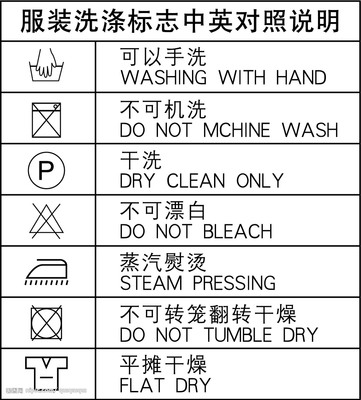英语学习方法中英文对照
在英语学习之初,我们应该注重培养对英语学习的兴趣.培养对英语的兴趣并不难.当我们可以说点儿简单的英语,用英语与别人或与老外交谈,或作别人的翻译时,我们就可以从英语学习中得到满足感和成就感,这样,兴趣就培养起来了.请注意,这种满足感和成就感很重要!
2. Plans are always very essential, so we must make some elaborate and workable plans before study. And we should certainly carry out these plans to the letter.
制定英语学习计划太重要了,所以我们必须在学习前制定精细的和可操作的计划. 并且我们一定要严格执行这些计划.请注意:千万不要干没有计划的傻事,那等于在浪费生命.
3. Notes should be made whenever we study any book. We may follow this advice: Don't read book without making notes. As we know that notes are the summarization, the core content, our understanding and the abbreviations of the books. Our notes are much thinner than the books so that we can learn them by heart easier and can often review and read them. We may also record our notes on tapes so as to often listen to them easier, to deepen our impression and to lighten our burden of memory. Sometimes it is needful to draw some tables and illustrations that are very impressive, visual and concise.
无论学习什么,我们都要作笔记.我们可以参照下面的忠告:不作笔记就不要读书.如您所知,笔记是我们对所学课本的总结,中心内容,我们的理解和课本的缩略.笔记要比课本薄的多,我们可以较容易的记忆和经常复习他们.更胜一畴的做法是把笔记录成音,这样我们可以经常听一听来加深印象和减轻记忆负担.
4. Watching English movies, English TV programs, listening to English songs and learn English on some special occasions are also excellent and vivid English learning ways as we may combine English with some certain scenes to deepen our memory.
看英文电影,收看英语电视节目,听英文歌曲和在某些特定场景学习英语也是很棒和很生动的英语学习方式,因为这样我们可以把所学英语与某些特定的场景联系起来以加深记忆.
5. Never just memorize single English words. Learn by heart the whole sentences and the phrases that contain the new words so we may know how to use the words.
请不要孤立地背英语单词.请背记包含生词的句子或词组,这样我们才真正能运用这些词汇,而且印象更深.
6. If time permits, we may read Mini Chinese-English dictionary carefully from cover to cover, which may help us widen our sight and master knowledge in all aspects.
如果时间允许,通读小小汉英字典对于英语学习也帮助很大.他能帮助我们扩大视野并全方位地掌握所学知识.
7. Excellent personality is one of the decisive factors in English study. Persistence, patience, self-confidence and determination are badly needed.
优秀的性格也是英语学习的关键因素之一,坚持,忍耐,自信和坚定都是很重要的.当然如果兴趣培养得好, 可适当削弱这方面的要求.
以下是具体方法:
1. Oral English口语学习)
A. We study spoken English so as to make oral communications, so this order of importance of oral English study should be followed: Fluency, Accuracy, and Appropriateness. That is to say, we have to pay more attention to practical communicating ability instead of only laying emphasis on the grammatical correctness.
我们学习口语目的是为了与别人进行交流,所以英语口语中的几个要素的重要次序应为:流利-准确-恰当.
B. Try to find some partners practicing oral English together and English corner is a good place as where we may exchange English study experience, widen our sight and improve interest in English.
努力寻找学伴一起练习口语.英语角是个不错的地方,在那我们不但可以练习口语,还可以交流英语学习经验,开拓视野,提高英语学习兴趣.
C. If English partners are not easy to get, then we have to create an English environment ourselves by speaking English to ourselves.
如果找不到学伴或参加英语角的机会很少,那么就需要通过自己对自己将英语来创造英语环境.比如对自己描述所看到的景物,英语口述自己正在作的事情.
D. This method is very effective and easy to insist on--interpreting Chinese-English novels or books. First we read the Chinese parts and then try to interpret them into English and then compare our interpretation with the original versions in the novels or books so that we can find out the mistakes, shortcomings and progresses in our interpretation.
这种方法非常有效且很容易坚持---口译汉英对照(或英汉对照)的小说或其它读物.首先我们先读汉语部分,然后逐句直接口译成英文,完成一小段后,去看书上的对应英文部分并与我们的口译进行比较,我们马上可以发现我们口译的错误,缺点和进步.
请注意:开始要选择较简单的读物.
这样作的好处:
1. 自己就可以练习口语,想练多久,就练多久.
2. 始终有一位高级教师指出您的不足和错误---英文原文.
3. 题材范围极广,可以突破我们自己的思维禁锢,比如我们总是喜欢谈论我们自己熟悉的话题,所以我们总是在练习相同的语言,进步当然就缓慢了.
4. 选择小说,幽默故事或好的短文阅读,使我们有足够的兴趣坚持下去.
5. 有一些我们在直接学习英语课文时被我们熟视无睹的地道的英语用法会被此法发掘出来.
6. 对所学知识和所犯错误印象深刻.这等于我们一直在作汉译英练习,很多英文译文是我们费尽心思憋出来的,所以印象相当深刻.比直接学习英文课文印象要深的多.
E. Interpreting what you hear---Changing Roles: Three people make a group: one speaks Chinese, one speaks English acting as the foreigner, one acts as interpreter. Then change roles. This is a good interpreting training method and is good for studying from one another. In addition, it may improve the responding ability and speed of students. The advanced stage of this method is simultaneous interpretation.
听译法-角色互换:三人一组,模拟翻译实战.一人将汉语,一人将英语,扮演老外,一人作翻译.练习一段时间后互换角色.这是一种非常好的翻译训练方法,也是很好的相互学习,取长补短的方法.而且可大大提高反应速度和能力.此法的高级阶段为同声传译,我们可以在听广播或看电视或开会时,把所听内容口译英文.
F. Oral composition and 3-minute training method: This method is suitable for intense training. Making an oral composition about a certain topic for one minute the first time and record the composition on tape at the same time. Then listen to the composition and find out the room for improvement. Then make the same composition for two minutes for the second time and also record it. And at last repeat the above-mentioned for three minutes.
口语作文和3分钟训练法:此法适用于强化训练.找好一个题目作一分钟的口语作文,同时将其录音.听录音,找出不足和错误,就此题目再作两分钟的的口语作文,同样录音,再听并找出不足与进步,继续作三分钟口语作文.这是高级口语训练,效果不俗.
G. Retelling exercise: Retell some articles or English stories in our own words.
复述练习:用自己的话口语复述我们所听的英语故事或文章.
H. If possible, we may read some English tongue twisters loudly and quickly with one or two cakes of candy in our mouth (just as the Chinese cross-talk actors do.) to train our oral cavity muscle and tongues suitable for English pronunciation.
如果可能我们也可以大声且快速朗读英文绕口令(就象相声演员练嘴),还可以同时口中含块糖以加大强化训练的力度.这样来强我们的口腔肌肉迅速适应英文发音,使我们的口语相当流利,清晰,而且还有自信.例如:
☆A big black bug bit the back of a big black bear. The big black bear bit back the big black bug.
☆This fish has a thin fin; That fish has a fat fin;
This fish is a fish that has a thinner fin than that fish.
I. Paying more attention to phrases and small words as one major shortcoming of Chinese English (especially Chinese oral English) is that Chinese students tend to use big words in their oral language, but the idiomatic oral English is abundant with short, active and vivid phrases. And most of such phrases are made of small words.
特别注意短语(词组)和小词的运用,中国式的英语尤其是口语一个很大的缺点就是中国学生喜欢用大词,而真正地道的英语口语确是充满着短小,活泼,生动的短语,富有生气.而这些短语大部分有小词构成.
J. Oral English has its own features, but it is closely combined with other aspects of English, for example, writing may make oral English precise and accurate.
口语随自有特色,但与英语的其它方面紧密相连.比如,经常练习写作,可是口语精密,准确.
2. Listening comprehension听力)
A. We may improve our aural ability by speaking English in the native and idiomatic way. The pronunciation, intonation and sentence structure should not be in Chinese style.
可以通过讲地道的口语来提高听力.发音,语调和句子结构请不要中国化.既然能说出来,当然能听懂.当然这样作有点难.
B. Keeping a relaxed, natural and steady mood when listening to some materials. Namely, to establish self-confidence and to develop excellent psychological quality are essential in the improvement of aural ability.
在作听力练习时,力求保持放松,自然和稳定的心态.即建立自信心和培养良好的心理素质在听力提高中致关重要.
C. We may make some simple notes while listening, for examples, the names of people and places, time, age, distance, occupation, figures and so on to get a better understanding of the content.
在作听力练习时,我们可以作些简单的笔记,例如人名,地名,时间,年龄,职业,数字等以便更好地理解材料.当然还要以听为主.
D. Catching the drift of the content instead of understanding every word and never waste too much time on single words.
作听力练习要重材料大意, 而不要力求听懂每个词,不要在单个词上浪费太多时间.
E. Pay close attention to CONCESSION and TRANSITION so as to correctly understand the attitudes of the speakers. The following words are most important: even though, even so, in spite of, unless, although, no matter, however, whatever, no, nor, neither…nor, but….
密切注意听力材料中的让步与转折以便正确把握说话人的态度.特别关注这些词: even though, even so, in spite of, unless, although, no matter, however, whatever, no, nor, neither…nor, but….
F. If we may learn by heart new words by listening some word tapes, the results must be satisfactory.
在背记生词时,如果能听词汇磁带,那么对听力提高也很有好处.
3.Reading skills阅读)
a. Intensive Reading: When we read the intensive articles, we should make notes of the new words and phrases and good sentences. After reading them, we may ask ourselves some questions about them by using such words: Who, What, Why, When and Where. Then try to answer them in our own words.
精读:在精读课文时,我们要把生词,词组,句型做成笔记.读后要试着用这些疑问词提问自己:谁,什么,何时,何地且努力用自己的话来回答.
b. Extensive reading: We must train our ability to scan, skip and read fast. Namely, the ability to catch the key words, the topic sentences and the drift of the articles.
泛读:要培养浏览,跳读和快读的能力.即抓住关键词,主题句和中心大意的能力.
c. Reading speed: Three ways to improve our reading speed: 1) Reading the articles from the beginning to the end without intervals so to catch the rough idea of the articles on the whole. Never waste too much time on some new words and single sentences. 2)We may keep time when reading articles.3) When reading articles, we can point at the words with our finger or pen point and our eyes move with the finger quickly so that we are able to read very fast.
阅读速度:三种方法提高我们的阅读速度:1.先从头至尾不间断地通读课文以抓住课文大意.不要在单个词或单句上浪费太多时间.2. 阅读时计时.3.阅读时用手指或笔尖指向文章字句并快速移动来迫使我们的眼睛快速随手指或笔尖移动来强化我们的阅读速度.
d. Newspaper as good reading materials can widen our sight and richen our knowledge.
多读报,多受益:开阔视野,丰富知识,学习流行词语和英语最新发展.
4.Writing skills.( 写作)
a. We have to accumulate abundant materials before we write something, say, learning by heart crowds of articles.
写作需要有很多素材,积累素材很重要.要多背课文.
b. Try to express one meaning in various ways.
努力用多种方式表达一种意思.
c. Keeping English diary if possible.
写英语日记.
a) Prepare some new words, expressions and good sentences to be used before writing something.
在写作前准备一些要用的好词汇,好句子.
b) We may also make some English pen pals to establish English communication relationship through some media like newspaper and magazines.
结交英语笔友,写英文信.这种方法容易坚持,还很有意思.不妨一试,好处多多.方法就是方法,它最终无法取代刻苦的学习. 不行动,说什么也没用!
-----------------
情态动词
情态动词的定义:
情态动词是一种本身有一定的词义,表示说话人的情绪,态度或语气的动词,但不能单独作谓语, 只能和其他动词原形构成谓语。
We can be there on time tomorrow.
我们明天能按时去那儿。
May I have your name?
我能知道你的名字吗?
Shall we begin now?
我们现在就开始吗?
You must obey the school rules.
你必须遵守校规。
情态动词数量不多,但用途广泛,主要有下列:
can (could), may (might), must, need, ought to, dare (dared), shall (should), will (would) .
情态动词的位置:
情态动词在句中放在谓语动词之前, 谓语动词前若有助动词,则在助动词之前,疑问句中, 情态动词则在主语之前。
I can see you. Come here.
我能看见你,过来吧。
He must have been away.
他一定走了。
What can I do for you?
你要什么?
How dare you treat us like that!
你怎能那样对待我们!
情态动词的特点:
情态动词无人称和数的变化, 情态动词后面跟的动词需用原形,否定式构成是在情态动词后面加 "not"。 个别情态动词有现在式和过去式两种形式, 过去式用来表达更加客气, 委婉的语气, 时态性不强, 可用于过去,现在或将来。
He could be here soon.
他很快就来。
We can't carry the heavy box.
我们搬不动那箱子。
I'm sorry I can't help you.
对不起,我帮不上你。
情态动词的用法:
can (could) 表示说话人能,可以,同意,准许,以及
客观条件许可,could 为 can 的过去式。
Can you pass me the books?
你能给我递一下书吗 ?
Could you help me, please?
请问,你能帮助我吗?
What can you do?
你能干点什么呢?
Can you be sure?
你有把握吗?
can 和could 只能用于现在式和过去式两种时态,将来时态用 be able to 来表示。
He could help us at all.
他完全可以帮助我们。
With the teacher's help,I shall be able to speak English correctly.
由于老师的帮助,我将能准确地讲英语。
may (might) 可以, 表示说话人同意,许可或请求对方许可。
You may take the book home.
你可以把书带回家去.
May I come in?
我可以进来吗?
May I use your dictionary?
我可以用你的词典吗?
You may put on more clothes.
你可以多穿点衣服.
He said he might lend us some money.
他说他可以借给我们一些钱。
may 否定式为 may not, 缩写形式是 mayn't.
might 是may 的过去式, 有两种用法, 一种表示过去式,一种表示虚拟语气, 使语气更加委婉, 客气或对可能性的怀疑。
He told me he might be here on time.
他说他能按时间来。
Might I borrow some money now.
我可以借点钱吗?
He might be alive.
他可能还活着。
Must 必须,应该,一定,准是, 表示说话人认为有必要做某事, 命令, 要求别人做某事以及对事物的推测。
must 用来指一般现在时和一般将来时, 过去式可用 have to 的过去式代替。
I must finish my work today.
我今天必须完成我的工作。
You mustn't work all the time.
你不能老是工作。
Must I return the book tomorrow?
我必须明天还书吗?
After such a long walk, you must be tired.
走了这么长的路,你一定困了。
He must be the man I am looking for.
他一定是我要找的人。
He had to go because of somebody's calling
him that day.
那天他要走是因为有人叫他。
must + have + 过去分词,表示现在对过去事物的推测。
He must have told my parents about it.
他一定把这件事情告诉我父母亲了。
He must have received my letter now.
他现在一定收到我的信了。
It's six o'clock already, we must have been late again.
已经六点钟了,我们一定又迟到了。
must 和 have to 的区别: must 表示说话人的主观思想, have to 表示客观需要。
You must do it now.
你必需现在就干。(说话人认为必须现在干)
I have to go now.
我得走了。(客观条件必须现在走)
need 需要 多用在否定式或疑问句中.
Need I attend the meeting tomorrow?
我需要明天参加会议吗?
You need not hand in the paper this week.
这一周你不必交论文。
need 是一个情态动词, 他的用法完全和其他情态动词一样, 但 need 还可当作实义动词使用, 这时 need 就象其他动词一样,有第三人称,单复数, 后面加带 to 的动词等特性。
I need a bike to go to school.
我上学需要一辆自行车。
Do you need a dictionary?
你需要词典吗?
She needs a necklace.
她需要一条项链。
needn't + have + 过去分词 表示过去做了没必要做的事情。
You needn't have taken it seriously.
这件事情你不必太认真。
dare 敢 多用在否定或疑问句中。
The little girl dare not speak in public.
小女孩不敢在公众面前说话。
Dare you catch the little cat?
你敢抓小猫吗?
dare 除用作情态动词外,更多的是当实义动词使用, 用法同实义动词一样,要考虑人称,单复数,时态等。
Do you dare to walk in the dark?
你敢黑夜走路吗?
He doesn't dare to tell the teacher what happened that day.
他不敢告诉老师那天发生的事。
ought 应当,应该 后面跟带有 to 的动词不定式。
You ought to read these books if you want to know how to repair the motorcar.
如果你想知道如何修理汽车,你应该读这些书。
You ought to bring the child here.
你应该把孩子带来。
ought + to have done 句型。指过去动作,表示一件事情该做而未做。
You ought to have been here yesterday.
你昨天就应该来。
ought not to have done 句型。表示一件不该做的事情却做了。
You ought not to have taken the book out of the reading-room.
你不应该把书带出阅览室。
will (would)决心,愿望。 would 为 will 的过去式,
可用于各人称。
I'll do my best to catch up with them.
我要尽全力赶上他们。
I'll never do it again, that's the last time.
我再不会做那件事情了,这是最后一次。
He said he would help me.
他说他会帮助我。
will, would用于疑问句表示说话人向对方提出请求或询问,用 would 比 will 更婉转,客气。
It's hot. Will you open the windows?
天气太热了,你能打开窗户吗?
Will you help me to work it out?
你能帮我解这道题吗?
Would you like some coffee?
给你来点咖啡怎样?
Shall, should表示命令,警告,允诺,征求,劝告,建议惊奇。
You should hand in the exercise book.
你应该交作业本儿了。
This should be no problem.
这应该没问题。
Shall we go now.
我们现在可以走了吗?
Why should I meet him?
为什么我要见他?
have to,不得不,必须,表示客观条件只能如此, 而must 则表示主观思想必须。
I have to go now.
我现在得走了。
I have to cook for my child.
我得给孩子做饭。
You must be here on time next time.
你下次一定要按时来。
We must go to get the timetable ourselves.
我们一定要自己去拿时刻表。
-----
动名词
动名词是一种非谓语动词形式。
非谓语动词指的是在句中起名词,形容词或副词作用的动词形式,而不是作谓语的动词形式。 动词的非谓语形式分为动名词,分词,动词不定式。
Climbing mountain is a good exercise. (Climbing..., 动名词起名词作用)
爬山是一项好运动。
Do you know the man wearing a white shirt. (wearing ... 分词起形容词作用)
你认识那个穿白衬衣的人吗?
He gets up early to catch the first bus. (to catch .... 不定式起副词作用)
他早早起床是为了赶上第一班汽车。
谓语动词和非谓语动词的区别:
2) 谓语动词在句中可单独作谓语,而非谓语动词不能单独作谓语。
Miss Mary teaches us English.
玛丽教我们英语。(teaches 动词作谓语)
Mr.Victor came to our classroom to have a talk with us last week.
维克托先生上周来到了我们教室和我们谈话。
(to have a talk.... 不定式作状语)
3) 谓语动词受主语的人称和数的限制,而非谓语动词形式没有这种限制。
Larke likes the pop music.
拉克喜欢流行音乐。
(动词用单数第三人称形式)
Larke has nothing to do today.
拉克今天没什么事要做。(do 用原形)
非谓语动词的特征:
2 如果非谓语动词是及物动词,后面须跟宾语。
Studying English is my favorite.
学习英语是我的爱好。(studying 后跟宾语)
To help him is my duty.
帮助他是我的责任。(help 后跟宾语)
3 非谓语动词可以带有自己的状语或逻辑主语。
Working under such a condition is terrible.
在这样的环境下工作太可怕了。
(under such a condition 是 working 的状语)
It's too difficult for him to master English in such a short time.
他在这么短的时间内掌握英语太难了。
(for him 作不定式的逻辑主语)
4 非谓语动词仍有语态和时态的变化。
I am sorry to have kept you waiting long.
对不起让你久等了。
(to have kept...是不定式的完成形式)
Seen from the mountain, the city looks much more beautiful.
从山上看,这座城市美丽多了。
(Seen from...是分词的被动形式)
5 非谓语动词在句中可以当成名词或者形容词来使用。
Our coming made him happy.
我们的到来使他很高兴。(coming 起名词作用)
There are two big swimming pools here.
这儿有两个大型游泳池。
(swimming 起形容词作用)
非谓语动词的形式变化:
不 定 式 主 动 被 动
一 般 to write to be written
进 行 to be writing /
完 成 to have written to have been written
完成进行 to have been writing /
现在分词 主 动 被 动
一 般 writing being written
完 成 having written having been written
过 去 分 词 一般 written
动 名 词 主 动 被 动
一般 writing being written
完成 having written having been written
动 名 词
动名词是由动词原形 + ing 构成,同现在分词形式一样,在句中可作主语, 宾语,表语和定语。
1) 动名词作主语:
Talking like that is not polite.
那样谈话不礼貌。
Learning from others is important .
向别人学习很重要。
Putting on more clothes is not so good .
多穿衣服不一定好。
动名词可以象动词不定式一样,用 it 先行祠代替, 而把动名词写在后面。
It's no use waiting here, let's go home.
在这儿等着也没用,我们回家吧。
It's very difficult climbing this mountain.
爬这座山很困难。
2) 动名词作表语
The nurse's job is looking after the patients.
护士的工作是护理病人。
Seeing is believing.
眼见为实。
3) 动名词作宾语
有些动词须用动名词来作宾语,它们是begin, mind, suggest, finish, stop, need, enjoy, miss, keep.
Please stop smoking in the house.
请不要在家里抽烟。
I like reading in the forest.
我喜欢在树林里读书。
Do you mind my opening the windows?
你介意我打开窗户吗?
She is found of collecting stamp.
她喜欢集邮。
动名词作定语
She is studying in the reading room.
她在阅览室学习。
He slept in the sleeping bag.
他在睡袋里睡觉。
动名词的否定形式:not + 动名词
He pretend not knowing it at all.
他假装全然不知。
We considered not doing it now.
我们考虑现在不做这件事 。
动名词的时态:
动名词的一般时 动名词的一般时表示动作与句中谓语动词的动作同时发生,或在谓语动词的动作之后发生。
I enjoy swimming in the big river.
我喜欢在大河里游泳。
I am used to watching TV in the evening.
我习惯于晚上看电视。
动名词的完成时 动名词的完成时表示动作在谓语动词动作之前发生。
She regret not having studied the computer hard.
她后悔没有努力学习计算机。
Do you remember having promised me that?
你记得给我许愿了吗?
动名词的被动形式 :
当动名词和它的逻辑主语是被动关系时,用动名词的被动形式来表示。
His being looked down upon made him sick.
他被人冷落使他很伤感。
I can't really stand being treated like that.
我简直受不了这样的对待。
动名词的几个特殊情况:
1) 有些动词的后面能跟动名词做宾语,有些动词能跟不定式,有些两者都可以, 它们的具体含义有时还不一样。
能跟动名词的动词有:
avoid, consider, delay, deny, dislike, endure, enjoy, escape, forgive, finish, imagine, keep, mind, miss, pardon, prevent, resist, suggest, understand, can't help, 等。
能跟不定式的动词有:
decide, desire, expect, hope, mean, pretend, promise, refuse, undertake, want, wish, agree, manage,
能跟动名词和不定式的动词有:
love, like, hate, prefer, dislike, begin, continue, intend, attempt, propose, want, need, remember, forget, regret, try, deserve, start,
动词后面跟动名词还是不定式,含义不相同,总的来说,表示习惯的, 一般性的动作多跟动名词,一次性的具体的被动动作多跟不定式。
I like to go with you.
我想和你一块儿去。
I like reading.
我喜欢阅读。
He promised to help her.
他答应过要帮助她。
We love watching VCD.
我们喜欢看VCD。
2) remember, forget, regret后面跟动名词时,动名词表示过去的动作, 后面跟不定式时,不定式表示将来的动作。
I remember meeting him in the street.
我记得在街上见过他。
I remember to write a letter to my parents.
我想起来要给我父母亲写信。
3) "stop + 动名词"表示停止动名词所表示的动作, "stop + 不定式"表示停下来 做不定式所表示的动作。
Stop smoking, please.
请不要抽烟 。
Let's stop to have a rest.
咱们停下来休息一下吧。
4) 动名词和分词的区别:
动名词作定语时,动名词和它所修饰的词没有逻辑上的主谓关系,而分词作定语时, 分词和它所修饰的词有逻辑上的主谓关系。
reading text 阅读课文 〔动名词〕
developing country 发展中国家 〔分词〕
a sleeping bag 睡袋 〔动名词〕
boiled water 开水 〔分词〕
---
English Grammar:浅谈定语从句与名词性从句的主谓一致
主谓一致就是指在英语句子中,主语和谓语在人称和数的方面应保持一致。很多学生对于英语的主谓一致了解不深,对定语从句和名词性从句的主谓一致了解得更少,因此很容易犯错误。下面就对这一问题进行探讨。
一、定语从句的主谓一致
一般来讲,定语从句中的动词在人称和数方面应该与它的先行词保持一致。例如:
1.I am not one who is afraid of difficulty.我是个不怕困难的人。
2.Don't choose me,who am not qualified for this job.不要选我,我不适合做这项工作。
3.Anyone who has questions to ask, please come to my office this afternoon.有问题要问的人,今天下午到我办公室来。
另外,关于定语从句的先行词,one of后常接复数名词,在非正式的英语口语中,有时甚至在一些很正规的文体中,动词的数不是与先行词保持一致,而是与 one相一致,这是因为说话者或写作者首先想到的是one,而不是one后面真正的先行词。例如:
4.That is one of the most valuable dictionaries that has appeared in recent years.那本词典是近几年来所见到的最有价值的词典之一。
5.Buenos Aires is one of the world capitals thatis noted for its busy harbor.布宜诺斯艾利斯是一个以其海港的热闹而闻名的国家首都。
第5句中的is不能改成are。这点很好理解,因为用are就意味着世界上所有国家的首都都以海港热闹而出名,这是不符合实际的。
当one前面有the only等限定词和修饰语时,定语从句的谓语动词也要与 one保持一致而取单数形式。例如:
6.He is the only one of those workers who is able to do this job.他是那些工人中唯一能做此工作的人。
二、名词性从句的主谓一致
主语是名词性从句(常用what,whatever,when,where,why ,how,that,whether等引导放在句首)时,动词通常用单数形式。例如:
1.What I am most interested in is American movies.我最感兴趣的是美国电影。
2.Whatever he says is of no importance.无论他说什么都不重要。
3.Whoever says that is wrong.无论谁说这话都不对。
4.That he will come is certain.他肯定会来。
5.Why he is late for class is more than I can tell.为什么他上课迟到,我也说不上来。
但在下面的句子中谓语动词要用复数形式,因为主语从句中的动词是复数,所以主语从句应当作复数看待。例如:
6.Who are going to attend the meeting have been decided by the manager.哪些人去参加会议,已由经理做出了决定。
7.Whoever say that are to be punished.谁这样讲,就惩罚谁。
由此可见,名词性从句作主语时,谓语动词用单数还是复数,不可一概而论,而要视句子的意义而定。学习时只有灵活处理,才能真正把主谓一致这个语法项目融会贯通
----------
四级考试考点词汇及真题解析
(A—M)
A
absorb vt.吸收;使专心
【搭配】be absorbed in专心于
【考题】She was so in her job that she didn't hear anybody knocking at the door.
A)attracted B)absorbed C)drawn D)concentrated
(1996.1/25/B)
【译文】她工作如此专心以致于没听见有人敲门。
abuse vt.滥用;虐待n.滥用
【考题】It has been revealed that some government leaders their authority and position to get illegal profits for themselves.
A)employ B)take C)abuse D)overlook
(1996.6/34/C)
【译文】据透露,一些政府官员滥用职权为自己谋取非法利益。
accomplish v.达到;完成
【考题】The project, by the end of 2000,willexpand the city's telephone network to cover 1,000,000 users.
A)accomplished B)being accomplished
C)to be accomplished D)having been accomplished
(1999.6/68/C)
【译文】预计在2000年前完成的这项工程将扩大该市的电话网至 1,000,000用户。
account n.账;账户v.说明……原因
【搭配】on account of 为了……的缘故,因为
take...into account 考虑到
【考题】I'd his reputation with other farmers and business people in the community,and then make a decision about whether or not to approve a loan.
A)take into account B)account for
C)make up for D)make out
(2000.1/63/A)
【译文】我得向社区的其他的农户和商人们了解他的信誉,然后再决定是否同意他的贷款请求。
approve vt.赞成,称许;批准
approval n.
【搭配】for sb.'s approval 求某人指正 give one's approval to 批准
【考题】If only the committee the regulations and put them into effect as soon as possible.
A)approve B)will approve C)can approve D)would approve
(1997.1/47/D)
【译文】要是委员会能尽快批准这些规章制度并付诸实施就好了。
approximately ad.近似地,大约
【考题】They claim that 1,000 factories closed down during the economic crisis.
A)sufficiently B)approximately C)considerably D)properly
(1993.1/45/B)
【译文】他们宣称大约有1000家工厂在经济危机中倒闭了。
arise vi.出现;由……引起
【考题】Some confusion has about who can join the association.
A)retained B)lifted C)raised D)arisen
(1992.1/43/D)
【译文】关于谁加入协会意见不一。
artificial a.人工的;矫揉造作的
【考题】There were some flowers on the table.
A)artificial B)unnatural C)false D)unreal
(1991.6/44/A)
【译文】桌子上有一些假花。
ashamed a.惭愧(的);羞耻(的)
【搭配】be ashamed of 以为……是耻辱
be ashamed to do sth.以干……为耻
【考题】He was of having asked such a silly question.
A)sorry B)guilty C)ashamed D)miserable
(1991.6/65/C)
【译文】他对自己问了这样一个愚蠢的问题感到很不好意思。
associate vi.交往n.伙伴,同事
【搭配】associate oneself with 加入
associate sth.with 把(某事物与其他事物)联系在一起
associate with 和……来往
【考题】A healthy life is frequently thought to be with the open countryside and homegrown food.
A)tied B)bound C)involved D)associated
(1996.6/23/D)
【译文】人们总是把健康的生活与开阔的乡村和自家种的食物联系在一起。
available a.可利用的;通用的
【考题】Convenience foods which are already prepared for cooking are in grocery stores.
A)ready B)approachable C)probable D)available
(1997.1/43/D)
【译文】经过加工随时可供烹调的方便食品在食杂店可以买到。
awkward a.笨拙的;尴尬的
【考题】The shy girl felt and uncomfortable when she could not answer her teacher's questions.
A)amazed B)awkward C)curious D)amused
(1998.6/42/B)
【译文】当这个害羞的女孩回答不上来老师的提问时,她感到很窘迫和难受。
B
ban v.禁止
In most countries the sale of liquor to children is banned.大多数国家都禁止卖酒给小孩子们。
n.禁止,禁令
announce a 30-day ban on hunting宣布30天的禁猎令
【辨析】ban,forbid 和 prohibit三个词都表示“禁止”,其中ban语气最重,指权威机关正式禁止。 forbid是普通用词,指个人行为。prohibit是正式用词,指用法律或法令来禁止。
bare a.无遮盖的;空的;仅仅的
a bare hillside 光秃秃的(无树木的)山坡
a room bare of furniture 几乎没有家具的房间
the bare necessities of life 最起码的生活必需品
v.揭露,暴露,揭开,去除……的覆盖物
bare one's head 脱去帽子
bare one's heart 表露真情
【全真考题】Although they plant trees in this area every year,the tops of some hills are still .
(99.6)
A)bare B)vacant C)blank D)hollow
[答案]A
barely ad.仅仅,只不过,几乎不
We barely had time to catch the train.我们仅有勉强赶上火车的时间。
【用法】1.barely 用在句首时引起句子倒装。 2.barely 含有否定意义,因此用在反意疑问句中时,句尾的疑问短句要用肯定形式。3.barely...when 结构表示“刚……就……”,barely 所在的部分要倒装。 4.barely 不与 ever,any 和 at all 连用。
【辨析】barely,hardly,rarely 和 scarcely四个词意义相近,都表否定概念,但也有一些差别。
rarely 意为“难得,不常”(not often)。
Rarely have I seen him smile.
hardly 往往强调能力上有困难,意为“简直不,很难”。
He can hardly jump over the fence.
scarcely 往往强调不足,常同 enough,sufficient,any 等表示程度的词连用,意为“不太,几乎,简直没有”。
He has scarcely any money left.
barely 与 hardly 和 scarcely 意思相近,意为“几乎,勉强,仅能做到”。但如果后面跟有 ever,any,at all 等词,只能用 hardly 或 scarcely,不能用 barely。
benefit n.益处;优越性;保险金,救济金
I've had the benefit of a good education.我得益于良好的教育。/the benefits of science科学的优良条件/ unemployment benefits失业保险
vi.得益
He hasn't benefited from the experience.他并没有从他的经验中受益。
vt.使……受益
This policy benefits the whole city.这个政策使整个城市受益。
【用法】benefit 作不及物动词时,其后常接介词 from。
bore vt.使……感到厌烦
All his old stories bore me.他所有的老生常谈使我厌烦。
n.令人厌烦的事物
Don't be such a bore.别这么讨厌。
【用法】bore的两种分词形式boring 和 bored:boring 表示主动,指某事物令人厌烦;bored表示被动,指被某事物弄得厌烦。
He was bored with his job./It's a boring film.
类似的词还有interesting与interested;exciting与 excited等。
C
concentrate v.全神贯注,精神集中,专心致志;集中,集合;浓缩
We should concentrate all our efforts on improving education.我们应该集中精力努力改进教育工作。
Troops are concentrating south of the river.军队正向河的南边集结。
n.浓缩液
【用法】concentrate(sth.)on sth./doing sth.
【全真考题】Anne couldn't concentrate what she was doing while her family were watching TV.(93.1)
A.to B.on C.for D.in
【答案】B
continual adj.继续不断的;一再重复的
continual rain 不停的雨
【辨析】continual与continuous
continual一般指多次重复的动作:Please stop your continual questions.
continuous表示动作或物体继续不停地或不间断地进行下去:a continuous flow of traffic
【全真考题】Our journey was slow because the train stopped at different villages.(99.1)
A.unceasingly B.gradually
C.continuously D.continually
【答案】D
contrary adj.(在性质、倾向或方向等方面)相反的;好与人作对的
contrary beliefs 截然相反的信仰
He is an awkward,contrary child.他是个又麻烦又不听话的孩子。
n.反面
【用法】contrary to 违反:be contrary to the law;on the contrary 与此相反:It doesn't seem ugly to me;on the contrary,I think it's rather beautiful.
【全真考题】What you have done is the doctor's orders.(90.1)
A.attached to B.responsible to
C.resistant to D.contrary to
【答案】D
contributev.捐款,捐助;有助于;投稿
We contributed clothing to the relief of the poor.我们捐赠衣物救济贫民。
Hard work contributed to his success.努力工作使他成功。
He contributed poems to the magazine.他投诗稿给杂志。
【用法】contribute与介词to搭配:contribute(sth.) to
【全真考题】Medical research has shown that the widespread use of cigarettes contributes the increase of cancers.(94.1)
A.towards B.for C.with D.to
【答案】D
critical adj.吹毛求疵的,批评的;决定性的,重要的
He is so critical that nobody can please him.他太吹毛求疵,所以没有人能取悦他。
We arrived at the critical moment.我们在关键时刻到达。
【用法】critical作吹毛求疵的、批评的讲时与介词 of搭配。
【全真考题】The director was critical the way we were doing the work.(2000.1)
A.at B.in C.of D.with
【答案】C
《大学英语教学大纲》中,关于四级词汇的要求是:“领会式掌握4200单词(其中复用式掌握的单词为 2500)以及由这些词构成的常用词组1600条(中学所掌握的单词和词组均包括在内),并具有按照基本构词法识别生词的能力。”大纲中所指的领会式强调对词义的认知,而复用式则强调对这类词的词义辨析、用法以及搭配关系的掌握。因此,以大纲为指导,四级考试中词汇的内容,除了考察对单词的认知外,还测试词义的细微区别、词汇用法和搭配关系。目前考察领会式词汇为73.9%占大部分,复用式占26.1%。在此篇和上期所列重点词汇的四级考题中,bare,concentrate,contribute,continual,critical都以复用式词汇方式来考察。其中,bare和continual考察词义的辨析;concentrate, contribute和critical考察了词的搭配关系。当然,四级试题中词汇的领会与复用也不都是界限分明的,有时在一道题中会既考察认知又考察用法等。
D
同学们,如果你正在复习大学英语四级词汇的字母D部分,请跟我来。先做题,再认真阅读题后的讲解。看看收获如何。
1.The issue is how to of radioactive waste.
A.deal B.dispose C.disposal D.do
[答案与译文]B.问题是怎样处理放射性废料。
[辨析及搭配]A.deal(with)处理;应付;做生意。例句:I have dealt with this company for more than a decade.我已经与这家公司做了十多年的生意。B. dispose(of)处理;处置;除掉;去掉。例句:Man proposes,God disposes.谋事在人,成事在天。Dispose of these old newspapers!把这些旧报纸处理掉。C.disposaln.处理;处置。D.do处理;整顿;解决(问题)。
2.The trend of brain drain does the developing countries degrees of harm.
A.diver B.diversify C.diverse D.diversity
[答案与译文]C.人才外流的趋势不同程度伤害着发展中国家。
[辨析及搭配]A.diver n.潜水员。B.diversify v.使多样化。C.diverse adj.不同的。D.diversity n.多样性。此处只能用形容词diverse修饰名词。
3.Whether he could obtain his diploma or not greatly him.
A.disturbed B.distinguished C.distresses D.disputes
[答案与译文]A.是否能取得文凭极大地扰乱了他的心绪。
[辨析及搭配]A.disturb 扰乱;打扰。B.distinguish(between;from)区分;辨别。C.distress使悲痛;使忧伤。D.dispute 争论;辩论;争执。
4.All had to stay in the open space,esp.at night, for the of the warning of an earthquake.
A.donation B.domination C.destination D.duration
[答案与译文]D.在整个地震警报期间,大家只好(特别是在夜间)待在空旷的地方。
[辨析及搭配]A.donation 捐赠品;捐款。B. domination统治;控制;支配。C.destination 目的地。D.duration期间;持续时间。
5.The free market is with purchasers and merchants.
A.deliberate B.dense C.dependent D.desirable
[答案与译文]B.自由市场上云集买卖双方而一片繁忙。
[辨析及搭配]A.deliberate蓄意的;审慎的。B. dense(with)密集的;浓厚的;繁忙的。C.dependent依靠的;依赖的;以……而定。D.desirable值得要的;合心意的;悦人心意的。
6.Mr.Smith is used to reading his favorite academic over coffee.
A.digital B.digest C.digestion D.indigestion
[答案与译文]B.史密斯先生习惯于边喝咖啡边读他最喜欢的学术文摘。
[辨析及搭配]首先排除A.digital adj.数字的;数码的。后面三个是同根词:B.digest v.消化,领悟。n.文摘,摘要。C.digestion n.消化,领悟。D.indigestionn.消化不良。
7.Failure is the mother of success,so that hers hasn't her,but encouraged her to redouble her exertions instead.
A.discharged B.discounted
C.discarded D.discouraged
[答案与译文]D.失败乃成功之母。所以她的失败没使她灰心丧气,反而使她加倍努力。
[辨析及搭配]A.discharge v.允许……离开;排(放)出。B.discount vt.打断;漠视;认为……不值得考虑。C.discard vt.&vi.抛弃;放弃。D.discouragev.使泄气;沮丧;阻拦。
8.The chemistry teacher dipped his finger into the mixture and took it out of it.
A.indirectly B.directly C.dimly D.diplomatically
[答案与译文]B.化学老师把一个指头伸进混合液里,立刻又拿了出来。
[辨析及搭配]A.indirectly 间接地;拐弯抹角地。 B.directly 立即;很快;直接地。C.dimly 微暗地;朦胧地。D.diplomatically 外交上;外交地。
(上接第2面)9.Any in a watch is very delicate.
A.device B.devise C.deviancy D.deviation
[答案与译文]A.钟表中的任何装置都非常精巧。
[辨析及搭配]首先排除动词B.devise v.设计;发明。A.device n.装置;设备;方法;计划。C.de- viancy n.反常;背离。D.deviation n.背离;越轨;偏差。
10.His disasters were to what he had done wrong.
A.despite B.in spite of C.down D.due
[答案与译文]D.他遭灾难的原因是曾经干过坏事。
[辨析及搭配]根据句中的to,可否定A和B。 A.despite不管;尽管;不论。直接带短语,例句:Despite the pouring rain,he went to his post as usual.尽管大雨倾盆,他照常去上班。B.in spite of与A同义。In spite of the pouring rain,he went to his post as usual.C. down往下;沿着。D.due to因为;由于……而起。例句: Due to his illness he was lying in bed.因为生病,他躺在床上。
11.No one can any citizen's legal right.
A.be done with B.draw on C.derive from D.deprive of
[答案与译文]D.谁也不能剥夺公民的合法权利。
[辨析及搭配]A.be done with了结了;完成了。 B.draw on戴(穿)上;吸收;引诱。例句:The jailer drew the prisoner on to tell his story.看守诱导囚犯把事情说出来。C.derive from得来(自);由……获得。例句: Anyone can derive a lot of pleasure from making friends.任何人都能从结交朋友中获得许多乐趣。D.deprive of剥夺;夺去。
12.The gifted engineer a model of the atomic generator.
A.dragged B.drafted C.drifted D.dratted
[答案与译文]B.那位天才工程师画了一幅原子发电机草图。
[辨析及搭配]A.drag拖;拉。B.draft起草;草拟。draft a plan of study草拟一份研究计划C.drift漂流;飘荡。D.drat(=damn)例句:Drat it!I forgot my key!见鬼(该死)!我忘了钥匙!
13.Mr.Black was in the ,standing there dumbfounded,not knowing what to do.
A.dark B.dusk C.dawn D.dam
[答案与译文]A.布莱克先生不知就里,站在那里目瞪口呆,不知怎么办好。
[辨析及搭配]A.dark黑暗,in the dark在黑暗中;不知情;蒙在鼓里。例句:Parents often keep their children in the dark about their presents on New Year's Eve.新年前夕,父母亲常常不让孩子们知道他们的礼物。B.dusk薄暮;黄昏:It is hard to see clearly at dusk.黄昏时难看清楚东西。C.dawn黎明;破晓。例句:They take their boat out every day at dawn.他们每天黎明时起航出海。D.dam大坝。
14.An unexpected guest on us last night.
A.decreased B.declined C.descended D.dropped
[答案与译文]C.昨天晚上,一位不速之客突然来到我们家。
[辨析及搭配]A.decrease减少;降低。例句:The number of illiberal people is decreasing gradually.缺乏文化素养的人数在渐渐减少。B.decline下倾;下降;下垂。C.descend下来;下降;突然来访(与upon,on连用)。例句:Amy descended upon us at Christmas.艾米在圣诞节时突然来访。D.drop落下;下降;滴,drop by / in /over /round顺便来访。
E
1.economic economical
两者都是形容词,但词义不同。
economic意为“经济上的”,“经济学的”;而economical意为“节约的”,“节省的”,常用于“be economical of”结构。例如:
economic growth经济增长
an economical person节俭的人
典型考题:Being of money,she managed to save enough for a holiday.
A.economic B.economical C.economics D.economies
答案为B。句意:由于节省,她设法储够了度假的钱。economics经济学,经济情况;economies节约,节省,节俭。
2.efficient effective
形容词efficient与effective都表示“有效的”。efficient指“有效率的”,“高效率的”,“有能力的”,常指人;而effective表示“有效的”,“效率好的”,“得力的”,常指政策、措施等。如:
a very efficient production manager 一位非常得力的生产经理
effective teaching 效果好的教学
典型考题:A lawyer needs an secretary.
A.inefficient B.efficient C.effective D.sufficient
答案为B。句意:律师需要一位能干的秘书。inefficient不能胜任的,没有能力的;sufficient充分的,足够的。
3.electric electrical
electric与electrical均作形容词用,但前者用来指“用电来驱动的”,“由电产生的”,后者为“与电有关的”。另外electric还可以表示“令人震惊的”。例如:
an electric torch(generator)电筒(发电机)
an electrical engineer电机工程师
典型考题:His speech had an
effect on the crowd;they all cheered him.
A.electric B.electrical C.electronic D.elastic
答案为A。句意:他的演说震撼人心,整个人群都向他欢呼。 electronic电子的;elastic有弹性的。
4.eminent imminent
eminent和imminent都是形容词,词形相似,但词义不同。eminent指“著名的”,“卓越的”,“杰出的”; imminent指“即将发生的”,“迫在眉睫的”。例如:
Washington was eminent both as a general and as president.华盛顿作为一位将军和总统,都是出类拔萃的。
The black clouds and the lightning show that a storm is imminent.乌云和闪电表明暴风雨即将来临。
典型考题:As we know,Churchill was one of the world's most statesmen.
A.eminent B.imminent C.illicit D.explicable
答案为A。句意:众所周知,邱吉尔是世界上最卓越的政治家之一。A与B较易混淆,前者意为“著名的”;后者意为“逼近的”,“即将发生的”。illicit违法的;explicable可解释的,可说明的。
5.emotional emotive
emotional与emotive并不同义,却常被混淆。emotional表示“充满感情的”,“易动感情的”,主语多为人;
emotive表示“使人激动的”,“令人感动的”之意,主语多为物。如:
an emotional person 易动感情的人
an emotive speech 令人感动的演讲
典型考题:Women are often said to be more than men.
A.emotions B.motions C.emotional D.emotive
答案为C。句意:常常说女人比男人易动感情。emotions是人类精神情感的总称,包括喜、怒、哀、乐等情绪;motions运动,动作。
6.enviable envious
enviable表示“值得羡慕的”,多作定语用。如an enviable possession一笔令人羡慕的财产。而envious表示“羡慕的”,“嫉妒的”,常用于短语be envious of(羡慕……,嫉妒……)。
典型考题:Mary would always be of her sister's beauty.
A.envoy B.various C.enviable D.envious
答案为D。句意:玛丽总是嫉妒她妹妹的美丽。envoy使节,公使;various各种各样的,不同的。
7.equal equivalent
equal与equivalent近义。但equal指在大小、质量、数量、形状、价值等方面相当或相等,常用词组be equal to(等于,和……相等),而
equivalent指在意义、重要性等抽象的方面相当或相等。另外,equal可作名词用,表“对手”,“匹敌者”。如:
equal pay for equal work 同工同酬
His behavior is equivalent to treason.他的行为等于背叛。
典型考题:John knows so much about the stars that I am sure it would be impossible to find his .
A.similar B.reflection C.equal D.equivalent
答案为C。句意:约翰对星球的知识如此渊博,我可以断定没有人可以与他匹敌。similar类似的,和to连用;reflection倒影,反射。
8.exhausting exhaustive
exhausting与exhaustive是同根形容词,但词义差别很大。exhausting意为“使人疲惫不堪的”,“筋疲力尽的”。而exhaustive表示“彻底的”,“无遗漏的”,“广泛的”。如:
We had a long and exhausting meeting this morning.今天上午我们开了一个使人疲倦的长会。
I don't claim to be exhaustive on this subject.
我并不认为自己把这个问题讲透了。
典型考题:The professor did research before writing the article.
A.exhausting B.exhaustive C.exhibited D.executed
答案为B。句意:这位教授在写这篇文章之前,做了全面的调查研究。exhibit展览,陈列; execute执行,如execute orders执行命令。
F
facility/f `siliti/n.①[pl.]设备,设施②便利,容易,方便
【考点】facility表示“设备,设施,便利”时通常只用复数。
faculty/`f k lti/n.①能力,技能,天赋②系,学科,学院③全体教员
【考点】faculty表示“全体教员”用做主语时,如看做是一个整体,则其谓语用单数形式;如看做是个体,其谓语则用复数形式。
fade/feid/vi.①褪去,褪色②逐渐消失,变微弱,变黯淡③凋谢,枯萎vt.使褪色
【辨析】fade和wither两词都可表示“凋谢”。但前者表示渐渐失去色彩和鲜艳,有时也表示暗淡。后者则指因无活力或不鲜艳而失去生气,可以借喻为“衰老”。
faithful/`fei ful/a.①忠诚的,忠实的,忠贞的②尽职的,责任心强的③如实的,准确可靠的
【考点】faithful用做表语时后面的搭配介词是to,即 be faithful to。
fancy/`f nsi/vt.①想要,喜欢②想象,设想②猜想,以为n.①爱好,迷恋②想象力,幻想力③设想,空想,幻想a.①昂贵的,高档的②别致的,花式的,花俏的
【考点】①fancy表示“设想,想像”时,后面接动名词作宾语,不可接不定式。
②fancy和think一样,在句子中常用否定转移,如I don't ~he will come to our party.
[常用词组]take a fancy to喜欢上,爱上
farewell/`f `wel/n.告别,欢送会
【辨析】farewell和good-bye两词都表示“再见”,但后者是普通用语,适用于各种告别的场合。前者是正式用语,多用于亲友远离时的告别。
feasible/`fi:z bl/a.可行的,可能的,可用的
【全真考题】
I suggest we put the scheme into effect,for it is quite .(CET-6,2000.1—42)
A)eligible B)sustainable C)probable D)feasible
【答案】D
【注释】A)eligible意为“合适的,合意的”指有资格做某事。B)sustainable意为“支撑得住的,能持续的”。C) probable只表示一种可能性,用在这里不合适。D)fea- sible意为“可行的”。
【译文】我建议把计划付诸实施,因为这项计划的确切实可行。
feature/`fi: /n.①特征,特色②【pl.】面貌,相貌③特写,专题节目④故事片vt.突出,由……主演
【全真考题】
Apeculiarly pointed chin is his mostmemorable facial .(CET-4,98.6—47)
A)mark B)feature C)trace D)appearance
【答案】B
【注释】本题为词汇测试题。一般说来,提到面部特征时常用feature一词,意为“面貌特征”。A)mark符号,记号;C)trace痕迹,踪迹;D)appearance外表,外貌。因此,正确答案为B)feature。
【译文】一个特别尖的尖下巴是他最容易被记住的面部特征。
fierce/fi s/a.①凶猛的,残酷的,好斗的②狂热的,强烈的③猛烈的,激烈的,狂暴的
file/fail/n.①档案,卷宗,文件②文件夹,公文柜③纵列vt.①把(文件)归档②把……登记备案,提出(申请书等)vi.①(for)提出②排成纵队行进
【常用词组】on file存档
【全真考题】
Thank you for applying for a position with our firm.We do not have any openings at this time,but we shall keep your application on for two months.(CET-6, 97.6—67)
A)pile B)segment C)sequence D)file
【答案】D
【注释】A)pile意为“堆”。B)segment意为“部分,片段”。C)sequence意为“顺序”。D)file意为“档案”。
【译文】感谢你向本公司谋职,目前本公司尚无空缺,但你的申请函我们将存档两个月。
flesh /fle /n.①肉,果肉②【the ~】肉体
【辨析】flesh和meat两词都可表示“肉”,但前者是从生理上讲的肉或肌肉。后者则指供人食用的动物肉(如牛、羊、猪肉),但一般不包括鱼或家禽的肉。
【常用词组】in the flesh本人
flock/fl k/n.①羊群,(鸟、兽等)一群,一伙人②一大批,众多,大量vi.群集,聚集,成群
【辨析】flock和herd两词都可表示“群”。但后者指较大动物的群,如马群、象群、鲸群等,而前者多指较小动物的群或鸟群,如羊群、雁群、鸭群等。
flourish/`fl :ri ,`fl ri /vi.茂盛,繁荣,兴旺vt.挥动(以引起注意)
【辨析】flourish,prosper和thrive三词都可表示“繁荣、兴旺”,其中flourish指健康地成长发展或处于发展的高峰;prosper则指人的成功或企业金融上的昌盛; thrive主要指生长得健壮,引申为繁荣。
folk/f ulk /n.①【pl.】亲属,父母②人们③【pl.】大伙儿,各位a.民间的,普通平民的
【考点】folk是集合名词,无论单复数形式都不指一个人,总是复数的概念。指自己家里人时多用folks,泛指人们时多用people。
forbid/f `bid /vt.不许,禁止
【考点】①forbid只能作及物动词。
②forbid sb.to do sth.表示“禁止某人做某事”。
③forbid doing sth.表示“禁止做某事”。
④forbid sb.wine表示“禁止某人饮酒”。
forecast/`f ka:st/n./vt.预测,预报
【辨析】forecast,foretell和predict三词都表示“预言”,其中predict较为正式,指根据已知事实或自然规律来推断未来的事情,带有科学准确的意味;forecast与 predict近义,指对一般或特殊事件的预测,现主要用于预报天气;foretell是普通用词,着重指对未来事件的预见而不注重其准确与否及有无根据。
former/`f m /a.在前的,以前的,旧时的n.【the~】前者
【辨析】former,preceding,previous和prior这几个词都可表示“以前的,先前的”,其中former指属于过去某一段时间的,即“从前的,前任的;preceding指时间、位置或顺序上居先,与定冠词连用含有“前一个,前几个”的意思;previous指在时间或顺序上“在前的,早先的”; prior除具有previous的上述意义外,还表示“更重要的”。
【全真考题】
The girl was a shop assistant;she is now a manager in a large department store.(CET-6,97.6—57)
A)preliminarily B)presumably C)formally D)formerly
【答案】D
【注释】A)preliminarily意为“初步地”。B)presumably意为“可能、据推测”。C)formally意为“正式的”D)formerly意为“从前,以前”。
【译文】这女孩从前是商店售货员,现在她是一家大百货公司的经理。
fundamental/.f nd `ment l/a.基本的,根本的,基础的n.【pl.】基本原则,基本法则
【全真考题】
The computer revolution may wellchange society as as did the Industrial Revolution.(CET-4,2000.1— 67)
A)certainly B)insignificantly
C)fundamentally D)comparatively
【答案】C
【注释】本题考查副词的辨析。A)certainly当然;B)insignificantly无关紧要的;C)fundamentally基本的,根本性地;D)comparatively比较地,比较上地。根据句意,C)项符合。
【译文】像工业革命一样,计算机革命也会给社会带来根本性的变化。
furnish/`f ni /vt.①布置,为……配备家具②供应,提供,装备
【全真考题1】
In preparing scientific reports of laboratory experiments,a student should his findings in logical order and clear language.(CET-4,95.1—68)
A)furnish B)propose C)raise D)present
【答案】D
【注释】本题为词义辨析题。A)furnish供给,装备,装置(家具等);B)propose建议,策划,提名;C)raise增加,饲养,提出(质疑,抗议等);D)present赠送,提起,陈述,表达(意见等)。根据题意,D为正确答案。
【译文】在准备科学实验报告时,学生应该用逻辑的构思、简明无误的语言陈述自己的研究发现。
【全真考题2】
Reading the mind only with materials of knowledge;it is thinking that makes what read ours.(CET-6,97.6—61)
A)rectifies B)prolongs C)minimizes D)furnishes
【答案】D
【注释】A)rectifies,rectify意为“纠正,校正”。B) prolongs,prolong意为“延长”。C)minimizes,minimize意为“减少(或缩小)到最低限度”。D)furnishes,furnish意为“提供”。
【译文】阅读虽为我们提供了各种知识,然而只有思考才能将我们所读到的东西变成自己的东西。
furthermore/`f : m /ad.而且,此外
fuss/f s/n.忙乱,大惊小怪,小题大做vi.①小题大做,大惊小怪②(为小事)烦恼,过于忧虑
【常用词组】make a fuss of/over对……关怀备至,过分注意
G
gas/g s/n.①气体②煤气③汽油④毒气vt.①用毒气毒(死)②(up)给(汽车)加油
【考点】step on the gas表示“踩油门,加大油门”。
gasoline/.g s `lin,`g s lin /n.汽油
gaze/geiz/v./n.凝视,注视
【考点】gaze是不及物动词,表示“凝视”时与at/on /upon连用;表示“凝视天空”时用gaze into the sky。
gear/gi /n.①齿轮,转动装置,(排)挡②(从事某项活动所需的)用具,设备,衣服vt.使适应,使适合
【常用词组】
gear up(使)准备好,(使)作好安排
generous/`d en r s/a.①慷慨的,大方的②宽厚的,宽宏大量的③大量的,丰富的
【辨析】generous和liberal两词都可表示“慷慨的,大方的”,但前者是普通用词,指热情关心他人,乐于给予金钱或帮助等;后者比较正式,着重指在给予或施舍方面出手大方。
genius/`d i:nj s/n.①天才,天赋②天才人物
【辨析】genius,gift和talent三词都可表示“天才,才能”,其中genius语气最强,指天生的高度智慧和创造才能,也指有天赋的人。gift是普通用语,着重指天赋的才能,但不一定有创造力。tal- ent语气较轻,着重指做某种工作的特殊才能。
ghost/g ust/n.①鬼魂,幽灵②痕迹,一点点
【辨析】ghost和spirit两词都可表示“鬼,幽灵”,但前者仅指死人的灵魂重现;后者除了上述意义外,还可指活人的“灵魂”。
given/`giv n/a.①规定的,特定的②假设的,已知的③(to)有癖好的,有倾向的prep.考虑到
【全真考题】
the claim about German economic might,it is somewhat surprising how relatively small the German economy actually is.(CET-6,96.1—55)
A)To give B)Given
C)Giving D)Having given
【答案】B。
【注释】句中应填入表示“考虑到”之意的词,given为介词,意为“考虑到,如果有”之意。
【译文】考虑到德国经济强大这一说法,德国经济相对来说如此弱小这一点有些令人吃惊。
glue/glu:/n.胶,胶水vt.胶合,粘贴
【常用词组】
glued to 不愿离开,盯住不放
golf/g lf,g :lf/n.高尔夫球运动
goodness/gudnis /int.天哪n.善良,美德,好意
govern/`g v n/vt.①统治,治理,管理②支配,影响
【辨析】govern,reign和rule三词均可表示“统治”,其中govern指用权力实行治理,即合法政府的统治;reign指君王的当朝,但不一定都实行治理;rule则指独裁统治或君王的专制统治。
governor/g v n /n.①州长,地方长官②主管,理事,董事
grab /gr b/vt.①抓取,攫取②赶紧做③抓住(机会)vi.(at)抓(住),夺(得)n.抓夺
【辨析】grab,grasp,grip,seize和take这几词都可表示“抓,握”,其中grab指由于自私而突然粗暴地抓住或强夺; grasp指紧紧地握在手中,也可用于比喻意义,表示抓住机会或掌握理解;grip指紧紧抓住或握住不放,或吸引注意力; seize指突然用暴力抓住或夺走,也可指利用时机;take是普通用词,指用手抓起、拿起,也可用于比喻意义,表示抓住机会。
grace/greis /n.①优美,优雅②【常pl.】风度,魅力③(付款等的)宽限,缓期vt.使优美,给……增光
【常用词组】
with good grace欣然地
graduate/gr d uit,`gr djuit/n.①(尤指大学)毕业生②研究生a.研究生的/gr d
更多阅读

最有效的初中英语学习方法
最有效的初中英语学习方法——简介 想要学好英语并不是一朝一夕就能够成功的事情,因为英语是一种语言,而语言的学习是需要同学们能够听说读写,面面俱到的,但是目前很少有同学能够具有一个非常适合学习英语的环境,但是还是有很多的同学在

浅谈小学英语学习方法
浅谈小学英语学习方法——简介对英语学习起着举足轻重的作用,对于小学生来说,更是一个不容忽视的问题。在小学英语教学中,教师应有意识地帮助学生形成适合自己的有效的学习策略,从而让学生学得轻松,学得快乐,享受学习英语的乐趣,为将来的英

英语单词学习方法的新突破——郑州智方ZG英语技术流
英语学习难题多,成绩提高慢?英语学习很枯燥!上课听不懂!单词记不住!单词背得快,忘的也快!单词记不牢,容易弄混淆!智方ZG英语

一些针织服装英语中英文对照 服装中英文对照表
针织服饰英语名词中英对照length长width宽chestwidth胸围waistwidth腰围hipwidth臀围bottomwidth底边宽度bottomcuffheight腰带长shoulderwidth肩宽shoulderslope肩斜sleevelength袖长armhole袖笼sleeveopening袖口宽cuffheight袖

破解毕加索——第二版中英文对照本1 英语听力中英文对照
我对我发表的全面揭示毕加索变体画中的秘密作了很大的修改,并全面的无保留的公开了破解的方法,因为我将将此中英文对照版发向国外网站,所修改的部分比较重要,所以还是先在国内发布,不能厚此薄彼,看轻了我们国内的读者。发现毕加索抽象变
 爱华网
爱华网